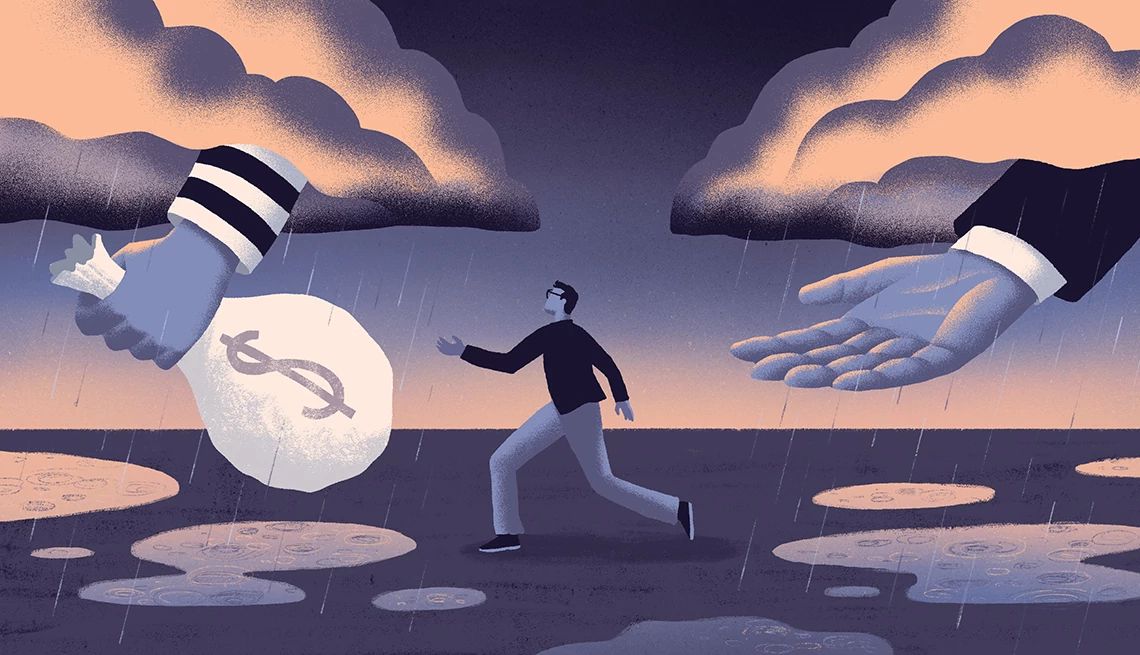AARP Hearing Center


The signature 2017 tax law implemented under the first Trump administration has had a ripple effect on scam victims: They’re required to pay federal taxes on the money stolen through scams. The July passage of the White House’s “One Big Beautiful Bill” extended that policy. It also maintained a longtime exception for people who have lost money in Ponzi-style investment schemes: This subset of investment scam victims, in many cases, can still deduct their losses. But victims of other types of scams will have to wait for congressional action to experience similar relief.
Meanwhile, the tax hit can extend their post-scam nightmares. “The thief stole most of their life savings, now the government demands the rest,” says Christopher Anderle, director of Legal Action of Wisconsin’s Low Income Taxpayer Clinic. “An income tax is supposed to tax those who have the ability to pay. Theft victims have lost the ability to pay, which is why, previously, they could deduct the loss.”
Victims’ stories
That was the case for Lori Flowers, 57, an oncology account specialist for a pharmaceutical company in North Carolina. A few years ago, she fell in love with a handsome man online — Herman Huysman from Belgium — after he reached out to her on LinkedIn to ask for advice about moving to her area of the state. He then spent months carefully grooming her. After she grew to care about and trust him, he said, “Lori, I need your help.” She eventually ended up “loaning” him $675,000 — nearly all of her savings, including funds from her 401(k), plus loans. “This man was masterful at manipulating my emotions,” notes Flowers. “I was like a lovesick teenager.”
Join Our Fight Against Fraud
Here’s what you can do to help protect people 50 and older from scams and fraud:
- Sign up to become a digital fraud fighter to help raise awareness about the latest scams.
- Read more about how we’re fighting for you every day in Congress and across the country.
- AARP is your fierce defender on the issues that matter to people 50-plus. Become a member or renew your membership today.
When she finally discovered he was a scammer, she was devastated. Then she learned that she’d have to pay $225,000 in federal taxes on the money stolen. Because of that massive tax bill, she was forced to file for Chapter 13 bankruptcy, and the IRS was first in line for her money.
“It’s a revictimization by taxes,” says Flowers, who’s channeling her anger into trying to spread the word about the implications of this tax policy. (Flowers also has found solace in the AARP Fraud Watch Network’s free online support groups for scam victims. “It’s the greatest hour of my week, every week,” she says.)
In another case, the daughter of an older couple, Suzanne and Dennis Gomas, stole nearly $2 million from her parents through a complicated fraud scheme while she was purportedly running their pet food business. The daughter went to jail, but the couple ended up owing more than $412,000 in taxes on money that she had used for fraudulent purposes. The IRS denied their petition to deduct those losses from their tax bill, and they appealed.
Judge Tom Barber of the Middle District Court of Florida upheld the IRS denial, while noting the unfairness of the law (not something judges often do). Barber wrote, “The Court is bound to follow the law, even where, as here, the outcome seems unjust.”






































































More From AARP
Got a New Friend Online? Be Wary. Here’s Why
Scammers may be harder to spot when they pose as pals rather than romantic partners
What to Do If You Become a Scam Victim
How one woman worked quickly — with help — to avoid being charged through PayPal
How to Spot the Signs of a Medicare Scam
Criminals want your Medicare card number in order to fake claims
Recommended for You